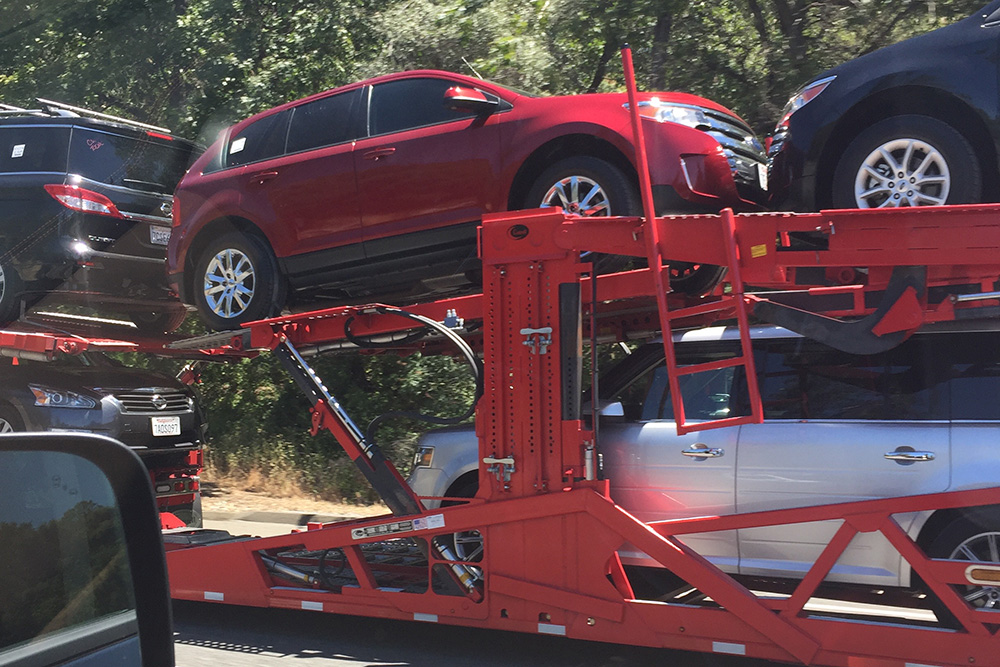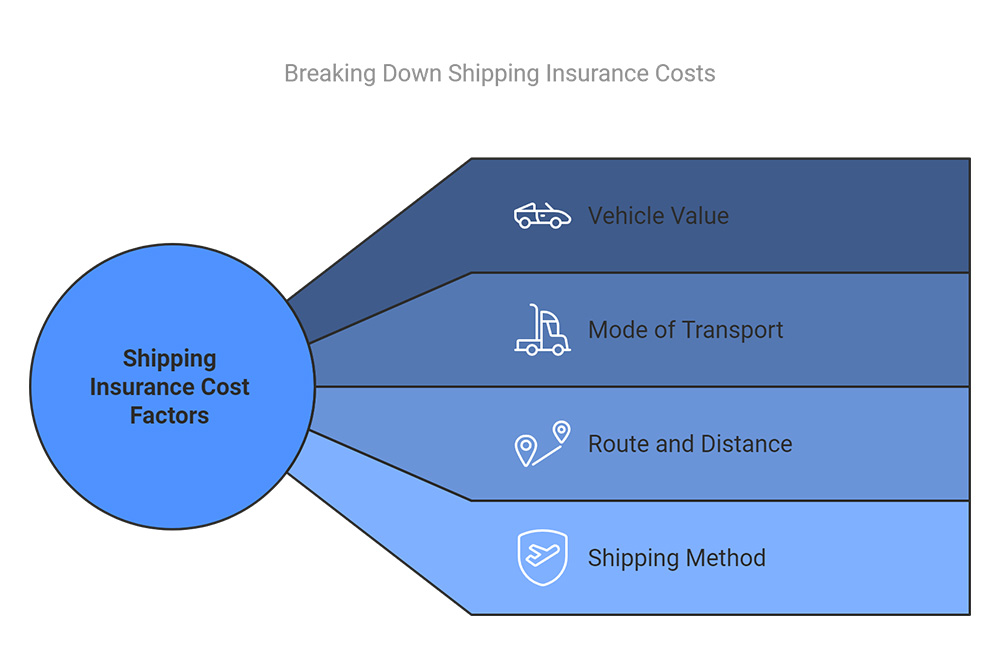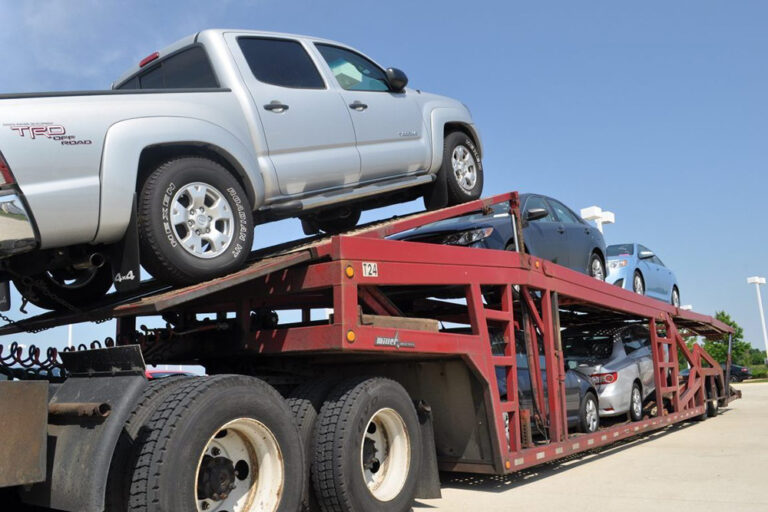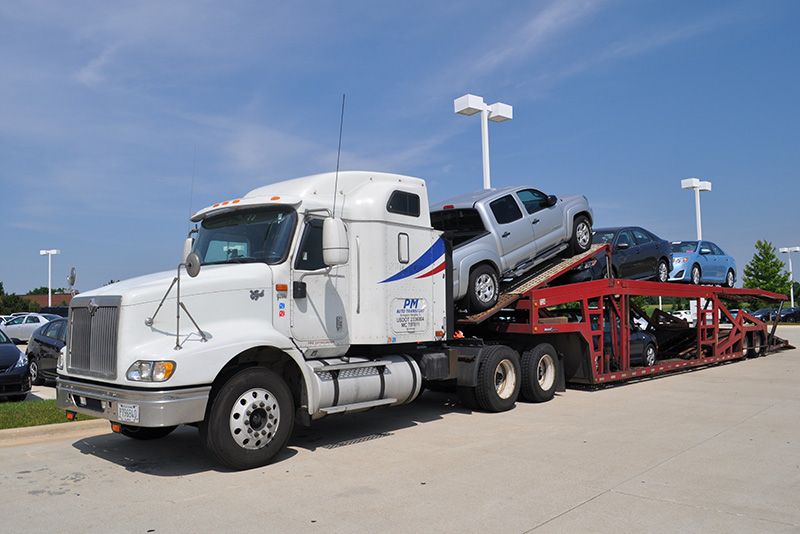Shipping a car, whether domestically or internationally, can be a complex process that requires careful planning and attention to detail. From navigating legal requirements to ensuring your vehicle is properly insured, there are many factors to consider to safeguard your investment and provide peace of mind. Understanding these considerations can help you avoid costly mistakes and ensure a smooth car shipping experience.
This guide delves into the essential aspects of car shipping, including the legal requirements in the United States, the unique challenges of international shipping, and the critical role of insurance. Whether you’re moving across state lines or shipping overseas, this blog will provide the insights you need to make informed decisions and protect your vehicle during transit.
Car Shipping Laws in the US
Overview of US Regulations
Shipping a car domestically in the United States is governed by strict regulations designed to protect both consumers and transport companies. The Department of Transportation (DOT) and the Federal Motor Carrier Safety Administration (FMCSA) oversee these regulations to ensure a safe and reliable transport process.
Car shipping companies must meet several requirements, including:
- Licensing: Companies must be licensed to legally operate in the car shipping industry.
- Vehicle Inspection Standards: Transport carriers must adhere to strict inspection protocols to ensure vehicles are handled safely.
- Insurance Requirements: Carriers are required to maintain proper insurance coverage to protect against liability during transport.
Choosing a company that complies with these regulations is crucial to avoid delays, damage, or disputes.
Requirements for Individuals
For individuals shipping a car, there are additional steps to ensure compliance with the law:
- Title and Registration: Ensuring your car’s title and registration are up to date is a fundamental requirement before shipping.
- Cross-State Transport: Some states may require specific paperwork or permissions for vehicles crossing state lines. For example, proof of ownership or emissions compliance may be necessary depending on the destination.
By confirming these details in advance, you can streamline the shipping process and avoid unexpected roadblocks.

International Car Shipping Laws
Shipping a car internationally introduces a new layer of complexity due to the varying laws and regulations in different countries. Proper planning and adherence to these regulations are essential to ensure a smooth and hassle-free experience.
Key Legal Requirements
When shipping a car overseas, you must comply with a range of legal requirements specific to both the exporting and importing countries:
- Customs Declarations and Duties: Most countries require detailed customs paperwork, including declarations of the car’s value, origin, and purpose of shipment. Import duties and taxes may also apply, often varying by country and vehicle type.
- Vehicle Inspection Certificates: Certain countries mandate vehicle inspection certificates to verify that the car meets safety and mechanical standards.
- Compliance with Destination-Specific Emission Standards: Many countries have strict environmental laws regarding vehicle emissions. It’s essential to ensure your car meets the standards in the destination country to avoid rejection or fines.
Importance of Research
International car shipping laws are not uniform and can differ significantly based on the destination country. Failure to comply with these laws can result in delays, fines, or even seizure of your vehicle. Thorough research is crucial:
- Verify the specific requirements of the destination country.
- Work with a reputable shipping company experienced in international transport.
- Plan for contingencies, such as unexpected documentation needs or delays.
Being proactive in understanding and adhering to international regulations will save time and money while minimizing stress during the shipping process.
Insurance Considerations When Shipping a Car
Insurance plays a pivotal role in protecting your vehicle during the shipping process. Understanding the coverage options available and choosing the right plan can prevent financial loss in case of unforeseen incidents.
Is Insurance Included in Shipping?
Most reputable car shipping companies include basic insurance as part of their standard services. However, it’s essential to understand the limitations of this coverage:
- Standard Coverage: Typically, this includes minimal liability coverage, protecting against damages caused by the carrier during transport.
- Limitations: Basic insurance policies may not cover all types of damage, such as weather-related issues, natural disasters, or theft.
Given these limitations, reviewing the carrier’s policy carefully is crucial. For added peace of mind, consider purchasing additional or comprehensive insurance to ensure broader protection.
How insurance is calculated in shipping?
The cost of shipping insurance depends on several key factors:
- Vehicle Value: Higher-value vehicles generally require higher insurance premiums to cover the potential loss.
- Mode of Transport: Enclosed transport, which offers greater protection, often comes with higher insurance costs compared to open transport.
- Route and Distance: Longer distances and routes through high-risk areas (e.g., regions prone to theft or severe weather) may increase insurance costs.
- Shipping Method: International shipping typically requires additional insurance coverage, such as marine insurance, due to the unique risks associated with sea transport.
For high-value or specialized vehicles, premium insurance is often recommended. This ensures full coverage for damages or losses, giving you greater confidence throughout the shipping process.

Why Pay Shipping Insurance?
Shipping insurance is an essential safeguard when transporting a vehicle, whether domestically or internationally. It acts as a safety net, protecting you against unforeseen risks and providing peace of mind during the process.
Risk Mitigation
Car shipping, while generally safe, involves several potential risks that insurance helps mitigate:
- Damage During Loading/Unloading: Vehicles may sustain scratches, dents, or more severe damage while being loaded onto or unloaded from transport carriers.
- Accidents During Transit: Despite precautions, road or maritime accidents can occur, potentially causing significant damage to your vehicle.
- Weather and Natural Disasters: Severe weather events, such as hailstorms or hurricanes, can lead to costly damage.
- Theft or Loss: Theft or misplacement of a vehicle is a rare but possible risk, particularly for high-value cars or international shipments.
The benefits of proper insurance include avoiding significant financial loss and ensuring timely compensation in case of damage or loss. While some may view insurance as an extra expense, it provides valuable protection against unpredictable scenarios.
Special Considerations for International Car Shipping Insurance
Shipping a car internationally involves unique risks, particularly when the vehicle is transported by sea. Understanding the available insurance options for maritime transport is critical to protecting your investment.
Marine Insurance
Marine insurance specifically covers vehicles during overseas transport and is typically recommended for international shipments. There are two main types of marine insurance coverage:
- Total Loss Coverage: This basic policy compensates you if the vehicle is lost entirely, such as sinking or irreparable damage. However, it does not cover partial damages.
- Comprehensive Coverage: A more robust option, this covers both total loss and damages incurred during transit, such as scratches, dents, or water damage.
Unique Risks Posed by Marine Transport
Shipping by sea presents specific challenges that may not be encountered during land transport, including:
- Water Damage: Prolonged exposure to marine environments can lead to corrosion or water-related damage.
- Storms and Rough Seas: Extreme weather conditions may cause accidents or delays.
- Piracy: In rare instances, piracy can pose a threat, particularly in high-risk regions.
Do You Need Insurance on a Ship?
While insurance is not always legally required for maritime transport, it is strongly recommended:
- Legal Requirements: Certain countries or shipping companies may mandate basic insurance coverage.
- Practical Recommendations: Even when not legally required, securing insurance is prudent due to the risks involved with international shipping. Marine environments are inherently unpredictable, and insurance ensures you are financially protected in case of unexpected events.
By investing in the right type of marine insurance, you can ship your car internationally with confidence, knowing that it is protected against the unique challenges of sea transport.
Additional Insurance Topics
What Is Double Insurance?
Double insurance occurs when two separate insurance policies provide coverage for the same vehicle and risk during the shipping process. For example:
- A shipping company includes basic liability insurance, and the vehicle owner purchases an additional policy for comprehensive coverage.
- A car dealership ships a vehicle with insurance included, but the buyer also secures their own insurance.
Advantages of Double Insurance:
- Extra protection: Ensures a safety net in case of disputes about liability.
- Increased payout options: In some cases, both insurers may cover portions of the claim.
Potential Redundancy:
- Cost considerations: Paying for overlapping policies may not be cost-effective.
- Claim conflicts: Determining which insurer is primarily responsible for a claim can complicate the process.
Reviewing existing coverage and understanding its limitations can help determine if additional insurance is necessary.

What Is a Shipping Insurance Claim?
A shipping insurance claim is a formal request for compensation if your vehicle is damaged or lost during transit. Filing a successful claim requires attention to detail and proper documentation.
Steps for Filing a Claim:
- Document the Vehicle’s Condition: Take clear photos of your car from multiple angles before and after shipping. Include close-ups of any pre-existing damage.
- Notify the Shipping Company Immediately: Report the damage as soon as it is discovered. Delays in reporting may impact the validity of your claim.
- Provide Necessary Documentation: This typically includes:
- The bill of lading (a record of the vehicle’s condition at pickup and delivery).
- Insurance policy details.
- Proof of damage (photos, repair estimates, etc.).
Tips for Expediting the Claims Process:
- File the claim promptly after discovering the damage.
- Maintain detailed records of all communication with the shipping company and insurer.
- Work with a reputable shipping company that has clear and transparent claims procedures.
Who Pays for Shipping Insurance When Buying a Car?
Buyer vs. Seller Responsibilities
The responsibility for shipping insurance in vehicle transactions depends on the agreement between the buyer and seller:
- Seller-Included Insurance: Some sellers, particularly dealerships, include insurance in the shipping cost to ensure the vehicle is protected during transit.
- Buyer-Arranged Insurance: In online purchases or private sales, buyers are often responsible for securing their own insurance coverage.
Importance of Clarifying the Agreement
Clearly defining who is responsible for shipping insurance helps avoid misunderstandings. Key considerations include:
- Reviewing the shipping contract or sales agreement.
- Asking the seller about the type and extent of coverage provided, if any.
- Securing additional coverage if the seller’s policy is insufficient for your needs.
Understanding these responsibilities ensures you are prepared to protect your investment during transit.
Conclusion
Shipping a car services, whether domestically or internationally, involve navigating complex legal requirements and insurance considerations. From ensuring compliance with regulations to selecting the right insurance coverage, careful planning can protect your vehicle and provide peace of mind.
Investing in appropriate insurance is crucial to mitigate risks such as damage, theft, or unforeseen incidents. Whether you’re dealing with basic liability coverage or considering premium options for high-value vehicles, understanding your choices can save you from financial loss and stress.
For a smooth and worry-free car shipping experience, seek professional guidance and partner with reliable car shipping services. Proper preparation will ensure your vehicle arrives safely at its destination, ready to hit the road.













